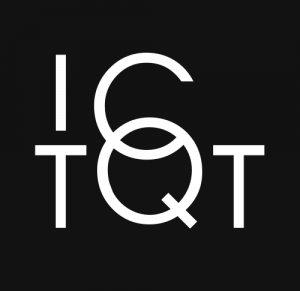Project title: Experimentally-oriented Device Independent CrypTography
The project is granted by the National Center for Research and Development from the funds of the QuantERA ERA-NET Cofund in Quantum Technologies programme supported by the European Union’s Future and Emerging Technologies programme (FET).
Current state-of-the art quantum-assisted cryptography provides safety
beyond what can be achieved with current classical technologies. Yet still,
its safety is at question when we consider possibilities of quantum hacking
or malicious producers of necessary quantum resources. This project aims
at overcoming these main limitations by radically shifting current
paradigms—by using device independent cryptographic (DIC) architecture.
This is on one hand more demanding on experimental resources and
theoretical understanding but on the other hand provides qualitative
improvement in safety. DIC devices would then be not only safe against
exploiting deviations of a real life from theoretical model but they would
also have possibility of verification whether using such a device is secure.
The broad aim of the Quantum Cybersecurity and Communication group
would be to perform research concerning quantum phenomena which
could be used for quantum methods for information transfer, coding and
processing, aimed towards applied physics and possible
commercialization.
The goals of the group are:
- Development of self-testing protocols.
- Security analysis of information processing protocols.
- Research towards increasing efficiency and reliability of quantum
protocols. - Studies of general rules for information processing.
- Studies on quantum hacking and cryptanalysis to identify possible
attacks and ways of preventing them. - Investigations of the role of information processing protocols as a tool to
analyze the fundamental laws of Nature. - Finding experimental, applied physics, and industrial partners and
collaborating with them towards building commercial quantum devices,
prototypes, or obtaining patents.
The goal of the post-doctoral researchers will be to use expertise from the
field of quantum optics and quantum information in order to advance on
the research problems delineated in this description.
- Active scientific research.
- Presentation of project results to internal and external parties.
- Active procurement of new research grants from external sources.
- Participation in mentoring of PhD and Master students.
- Participation in organizational activity of ICTQT.
- Active involvement in seminars, group meetings, etc.
- PhD degree in physics, mathematics or computer science.
- Interest in quantum information and communication.
- Some experience in collaboration with experimental groups is
welcome. - Written and oral communication skills.
- Ability to work effectively with people from diverse cultural
backgrounds.
- Full-time employment in a rapidly developing unit, the International
Centre for Theory of Quantum Technologies at the University of Gdansk. - Scientific and organizational support.
- Basic equipment and core facilities.
- Friendly, inspiring, interdisciplinary environment.
- Curriculum vitae;
- A research resume with a list of publications, and a list of research projects (esp. those in which the candidate was the principal investigator); PDF files
of three most important papers by the candidate (or just web links, in the
case of open access publications); a list of invited talks at conferences and
workshops, and a list of academic prizes and awards; - Motivation letter (including statement of current scientific interests) – up to
2 pages; - Documents confirming scientific degrees (copy of PhD diploma, or
equivalent); - Name and contact details (e-mail addresses) to two senior researchers who
may provide reference for the candidate (the candidate is expected to
contact the referees and ask them to send reference letters directly to
marcin.pawlowski@ug.edu.pl. The letters must be sent before the
deadline.). ICTQT may also contact the referees directly, to request the
letters, or to send reminders.
- ICTQT Selecting Commission (SC) reserves the right to invite for the
interview only pre-selected candidates. - SC’s decision is final and is not subject to appeal.
- SC reserves the right to close the competition without selecting a
candidate. - The decision will be made by SC within 3 months from the date of
recruitment completion.
Please submit the documents to Professor Marcin Pawłowski via email: marcin.pawlowski@ug.edu.pl
For other questions regarding the recruitment process please contact us at ictqt@ug.edu.pl
Job entry on Euraxess: https://euraxess.ec.europa.eu/jobs/680318

